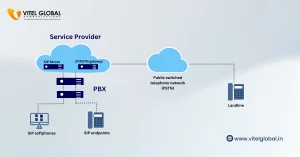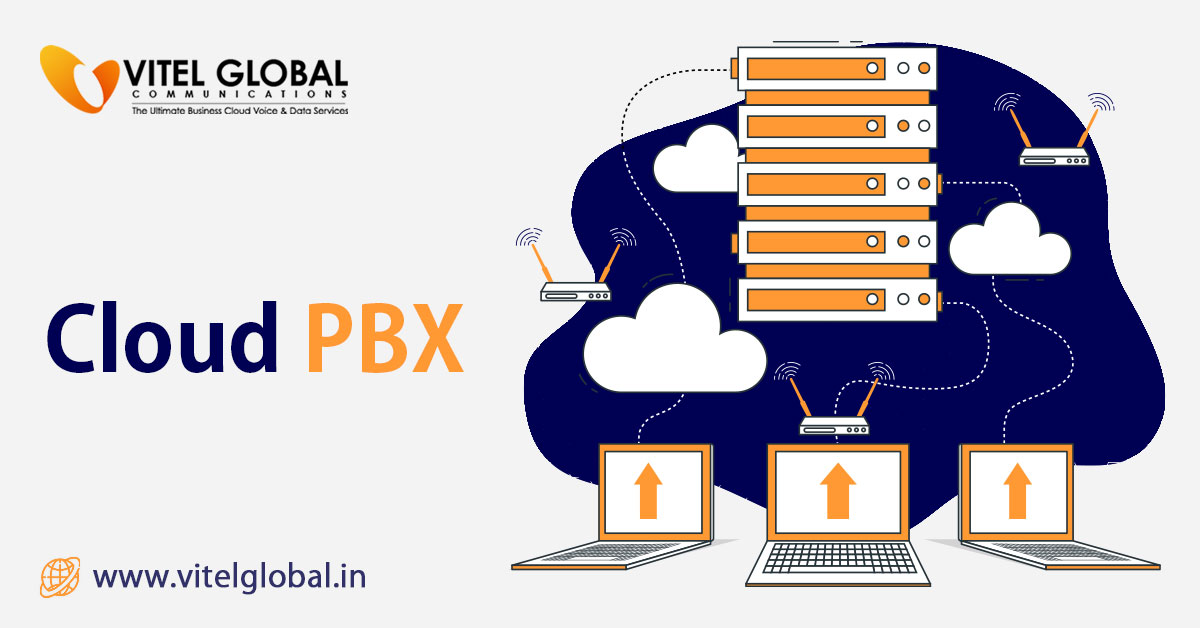Table of Contents
Do you know the difference between SIP Trunking and Cloud Telephony?
Today’s business communications extend far beyond regular voice calls. Addressing the issue;
SIP (Sessions Initiation Protocol) is a set of rules that makes calls and connects multimedia sessions. On the other hand, cloud telephony is based on the digital technology used to place internet calls.
Of course, there are a variety of technologies used by professionals to communicate. But, phones remain a crucial tool. In general, the average employee uses their phones, email, mobile apps, chat, messaging, and even video conferencing often over the course of a day.
What are Business Phone Solutions?
In fact, today’s alternatives for business phone systems have increased because of technological improvements. In order to cut expenses, businesses are increasingly converting from antiquated solutions like Primary Rate Interface (PRI) lines to more sophisticated solutions like Voice over Internet Protocol (VoIP).
With the growing competition, switching to internet-based phones is the best choice for some businesses. But at the same time, most businesses can’t rely on cloud telephony as a viable option. Many businesses, especially small ones will benefit more from a unified communications strategy. UCaaS includes phone, text, conferencing, mobility, and other forms of communication.
Therefore, 2 choices for new business phone systems are cloud telephony and Session Initiation Protocol (SIP). This blog will explain the advantages and disadvantages of each of these approaches. We will also attempt to offer advice on which might work best for you.
Difference between SIP and Cloud Telephony:
Cloud calling and SIP cannot be directly compared. The bulk of cloud implementations uses the SIP protocol. However, the term cloud telephony can be used to describe any internet-based phone service. Despite being in use for the previous 3 decades, VoIP technology has significantly increased its popularity as a corporate tool during the past ten years of its design.
Within a few months after the COVID-19 outbreak, more organizations, as well as employees, are choosing to work remotely or in some cases; in hybrid environments. As a result, your business communications solution is more important than ever and needs to be more operational and flexible. This helps with internal communication and also the same with customers and stakeholders.
Before deciding whether cloud phones or SIP is preferable for your organization in today’s corporate environment, let’s first define what each service accomplishes.
What is SIP Trunking?
SIP primarily comes with cloud services in order to initiate, maintain, and terminate multimedia communication sessions. Also, SIP indicates and control apps such as voice, video, and texting. The hosted SIP trunking service is often offered by a supplier of hosted unified communications. They might also provide Cloud calling services and unified communications as a service (UCaaS).
Therefore, SIP trunking is used to scale and support VoIP, although not all cloud phones are supported by SIP technology. It helps to allow video conferencing, instant messaging, texting, and other multimedia interactions in business communications. So, notice that SIP is merely one of the protocols to employ. Even though SIP is the most popular protocol, different suppliers interpret it in distinct ways.
There is a major change, and it is with respect to the flexibility in operating information. Because it is crucial for a company’s long-term performance.
However, due to the variety of features and quality, cloud telephony has both advantages and disadvantages that may vary depending on the type of service an organization provides.
Relation between Cloud technology and SIP:
Additionally, if you make a case study about the benefits and drawbacks of VoIP and SIP, it does not get you to the right terminal. So, let us compare cloud technology to the cloud with SIP. We will take into account the benefits and drawbacks of corporate internet phone service that simply offers voice communications (VoIP only) as compared to multimedia features (VoIP with SIP).

Pros of Cloud Telephony (without SIP):
The initial capital investment of your company reduces. The predictability, there is a flat rate monthly payment that can result in significant long-term capital savings. Cloud-based systems are incredibly portable and they don’t need on-site installation.
Many basic business phone service plans only contain a few limited capabilities. They include things such as caller ID, call waiting, and call forwarding. Most business phone service providers do not demand lengthy service agreements.
Cons of Cloud Telephony (without SIP):
- High bandwidth is necessary for a better call quality of service (QoS) and sometimes service availability.
- Some smaller service providers might not offer mobile apps or integration.
- Voice-only services do not support multimedia messaging.
- Perhaps unable to integrate with specific software programs.
Unlike conventional PRIs, Session Initiation Protocol (SIP) enables enterprises to scale with ease. Additionally, you may immediately start saving money by unlocking extra features and productivity tools. In order to accurately compare SIP to cloud calling systems, it is necessary to look at how SIP may turn cloud phones into a multimedia communications experience as opposed to voice-only internet phone service.
Pros of Cloud Technology with SIP:
Cloud phones with SIP can save expenses for business applications. It allows organizations to combine technologies into Unified Communications platforms.
Besides, this solution offers data recovery for staff mobile devices in the event of any loss of data connectivity. Therefore, businesses can acquire additional features and lines with the use of cloud phones and SIP. Also, it gives them a great deal of price freedom.
To make it simple, cloud calling with SIP enables you to plan customization. This means it has user-friendly features and administrative facilities for adding more lines at times of need.
However, for the purpose of implementing unified communications, the team has to integrate with cloud apps. For greater efficiency, cloud technology with SIP trunking offers integration with popular corporate software and apps. Combining with existing PRI lines, this blend can build a hybrid phone system.
Related Collaboration Apps or Technologies:
SIP expands the basic cloud capabilities beyond voice calling simply by allowing organizations to share messages, videos, files, and other types of data over an internet connection. In this way, many firms save money and boost their productivity by immediately using SIP Trunking and unified communications platforms.
Cons of Cloud Technology with SIP:
To talk about the disadvantages of cloud calling with SIP include the requirement for a large internet bandwidth to deliver a service of the highest caliber.
Depending on certain variables, the quality of service offered by SIP service providers can vary widely. To add, a number of capabilities are available from the service providers. Among them, some might not be fully Unified Communications services. So, compared to a dedicated fiber-optic internet service from the same provider as your SIP carrier, SIP over a public internet service will provide quality and security problems.
Conclusion:
To summarize the above discussion, the services of choice are dependent on the company profile and requirements. If you want to find the best technology for your company, it is always a topic of constant discussion.
To clarify, it is better to select the services based on the demands of your business. However, SIP and cloud telephony cannot be directly compared. So, here is the ideal question to ask yourself!
Is your business going to gain more from a voice-only cloud phone service or the same from a SIP setup with unified communications features?
Vitel Global India is a Cloud-based phone solution that is best in class and includes fully secured, cross-channel communication. It enables your agents to seamlessly shift support interactions from one channel to the next. See how it works to learn how Vitel Global India can help you to choose the right communication. Why not request a free demo today?






